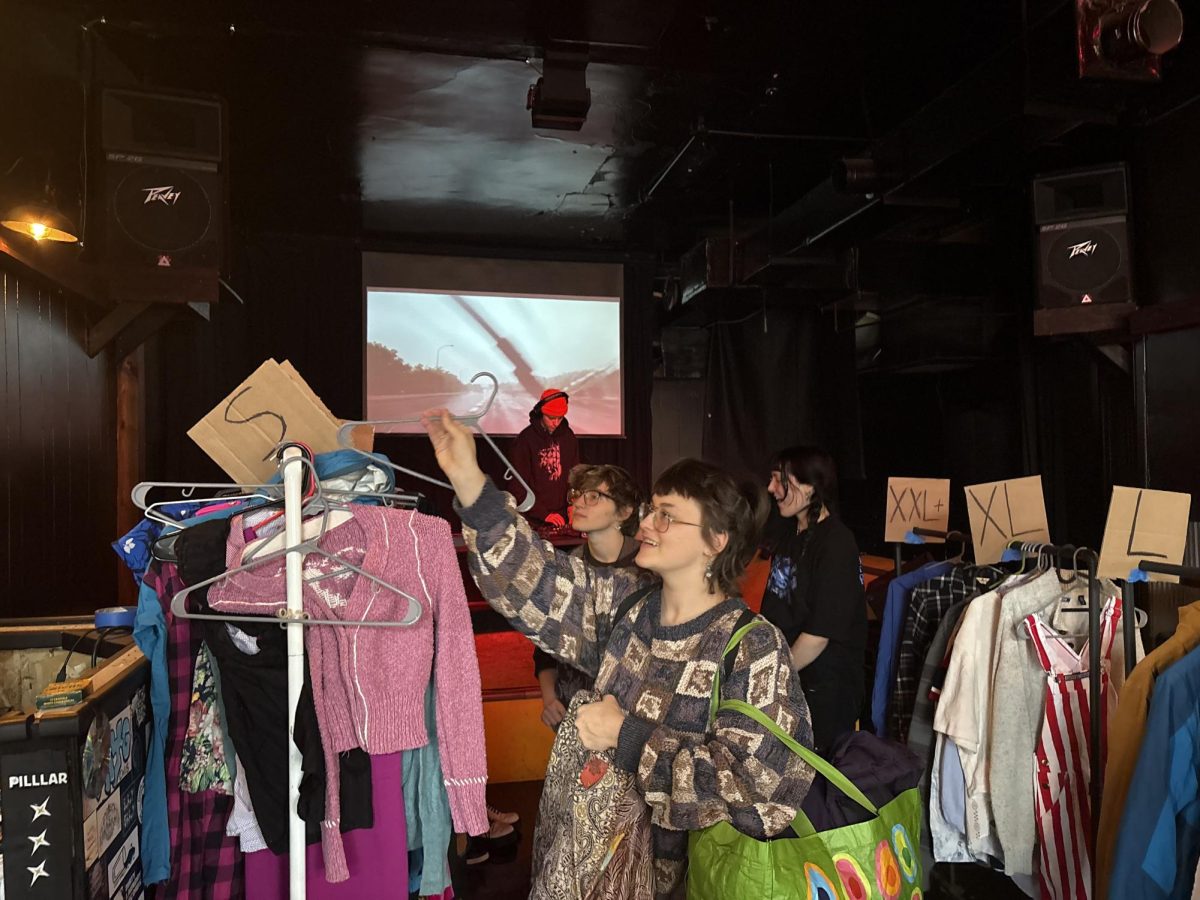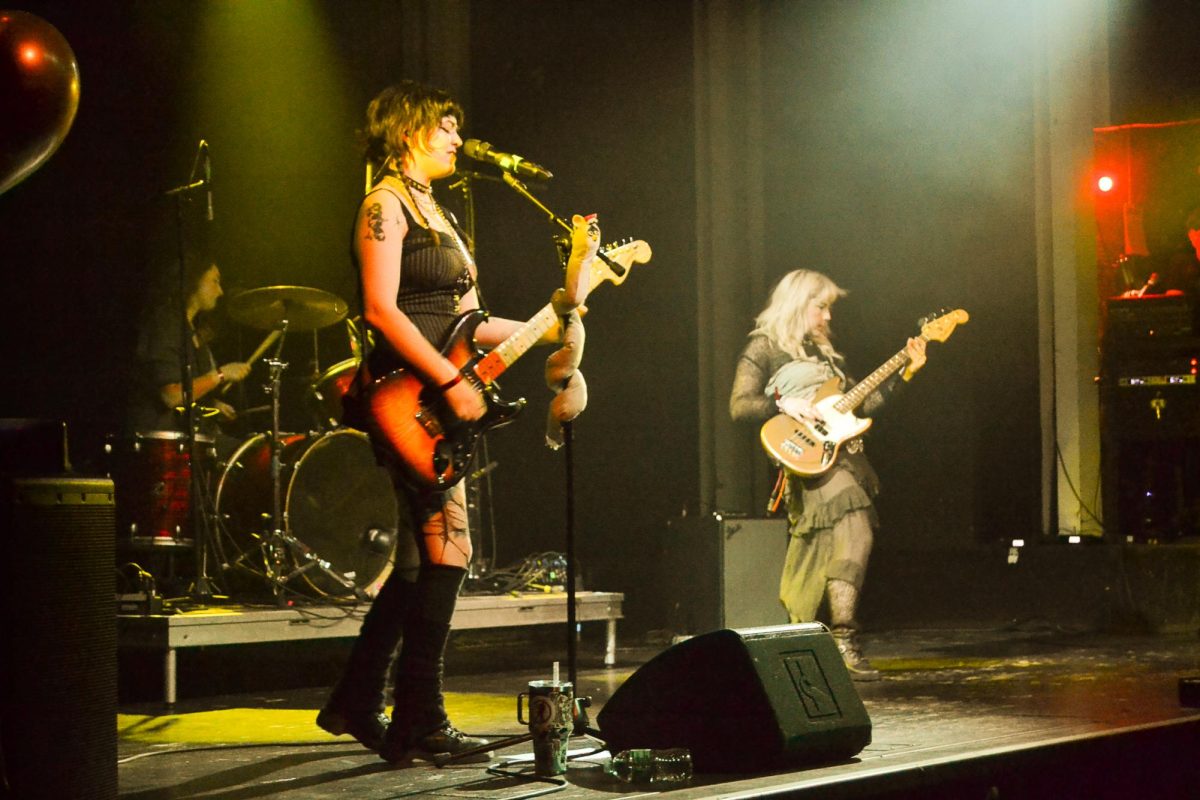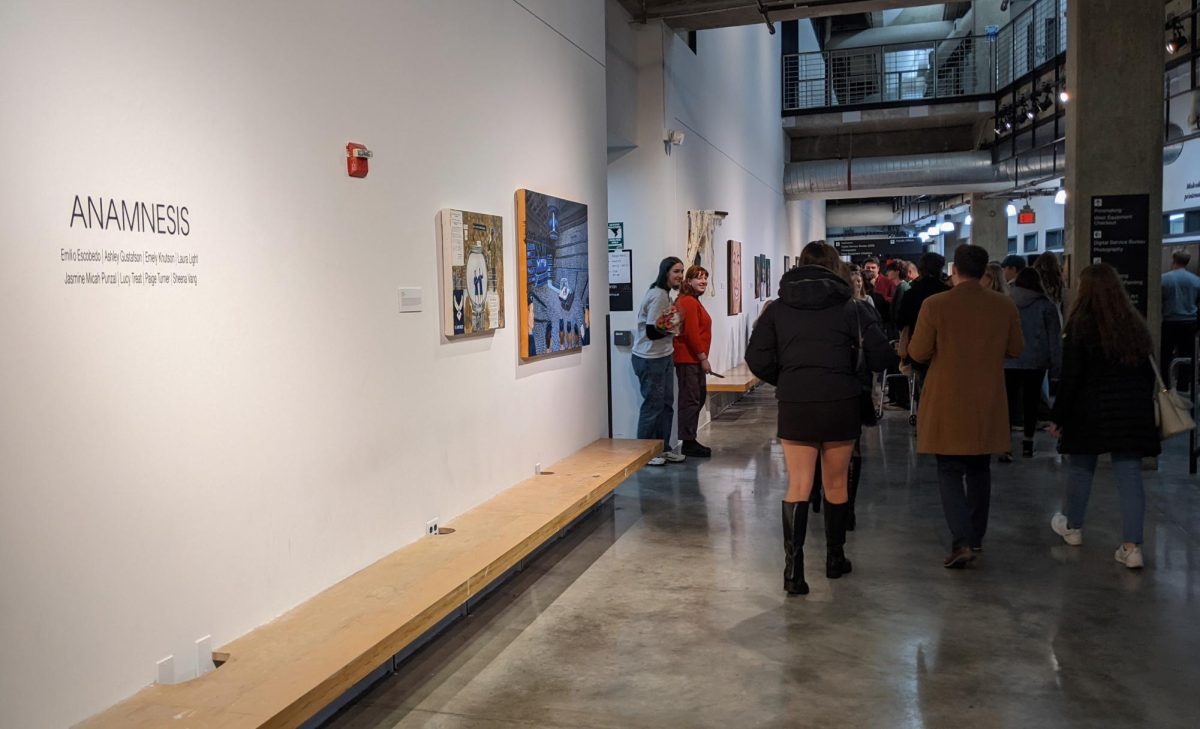There’s a legend Radio K staffers recount with pride. Minnesota Public Radio, the story goes, has attempted to buy the station three times during the years. Each time, Radio K survived.
The University station won’t be overpowered by MPR this time, either – at least not if the spirit of staff members is any indication.
Of course, the “legend” is only partially true; in fact, MPR has twice tried to convince University officials to hand over Radio K to maximize efficiency and save money, said Andy Marlow, long-time station manager. No money was to change hands.
Ironically, the tale has renewed relevance to the campus station’s current situation. Six weeks ago, broadcasting giant MPR began its rock/indie pop radio station, 89.3 The Current.
But that wasn’t the only recent challenge Radio K has had to confront. Two weeks ago, the Student Services Fees Committee unveiled next year’s proposed funding, which cuts $47,000 from the station’s $147,000 annual allotted funding. This week, Radio K gained $10,000 back, but the recommended budget still falls $37,000 short of last year’s totals.
These two events, especially the funding proposal, “could not have come at a worse time,” said Sarah Sandusky, Radio K’s marketing director.
“We are already late in planning Power Surge, our annual April fund-raiser because of the time we’ve devoted to dealing with (the budget cuts),” she said.
Also, this spring’s schedule includes reviewing the station’s five-year strategic plan and three other Radio K events, in addition to the normal business of running a radio station.
“We’re dealing with a lot right now,” said Mark LaCroix, Radio K’s programming director. “We want to get back to making great radio, but we can’t do that without the student funding.”
The “a lot” LaCroix referred to is likely the recent popularity of The Current.
A recent City Pages article called Radio K “the nonprofit station that is most likely to feel the impact of The Current.”
Sandusky said she agrees the station has become a sort of rival for Radio K.
“They’re a competitor, and we’ve never had a competitor such as this,” she said. “Rev 105 was a different animal. With The Current, we’re both public and we both rely on money from the public.”
The similarities do not end there.
Sandusky calls The Current’s format “very similar” to Radio K’s, noting The Current employs three former Radio K staff members, including the station’s former program coach, Mark Wheat.
Sandusky, however, is not fazed by the uncanny resemblance between the stations.
“It’s a compliment that they emulate our format,” she said.
She also said she sees the positive in the young station.
“Really, their presence is a double-edged sword,” she said. “I’m not speaking for the whole station, but I think most people around here think The Current is good for the local music scene and radio diversity, whether they admit it or not.”
The Radio K staff is quick to point out the two stations are unique in their own right.
Although there are similarities in the playlists, Radio K staffers said they feel they represent divergent philosophies in programming.
“They play the blander, more accessible stuff,” Sandusky said of The Current. “We include the loud rock, the hip-hop, world music. There’s more diversity here, because we play all the weird, experimental and underground music they don’t.”
Wheat, now program director at The Current, neither “agrees nor disagrees” with the playlist assessment, but he said The Current is committed to playing a “broad and deep” selection with “all kinds of artists”.
The station’s playlist as a whole reflects the freedom individual DJs have to play the music they enjoy, he said.
Radio K is gearing up for upcoming innovations at the station, including broadcasting on an FM frequency 24 hours a day.
“We’re also continuing our goal of better defining Radio K in terms of who we are and why we are here. An underlying theme in the last year has been promoting our connection to the community and University,” Sandusky said, adding that the station has participated in 17 campus events this school year.
Above all, the staff members at Radio K are resolute in their assertion the station will continue moving forward, regardless of finances or new competition.
Sandusky said all staff members have a vested interest in the station because of the large amounts of time and effort they put in.
“We have a lot more spunk than a station like The Current, because we have to constantly fight to stay afloat,” she said. “There’s a sense of fragility here, too. We are always aware of what we have to do to maintain the station.”
LaCroix, despite disappointment at the lack of funding, echoes the sentiment of perseverance.
“This is what we do, and we’ve been doing it for 11 years now. We work with what we have. It will be difficult if we have to lose staff members, because we’re already working to the max. But, ultimately, we’ll get done what they want us to get done,” he said.
Marlow said he agrees. “Radio K is a work in progress, and we’re always adapting and changing. We constantly renew ourselves; it’s a blessing and a curse,” he said.







